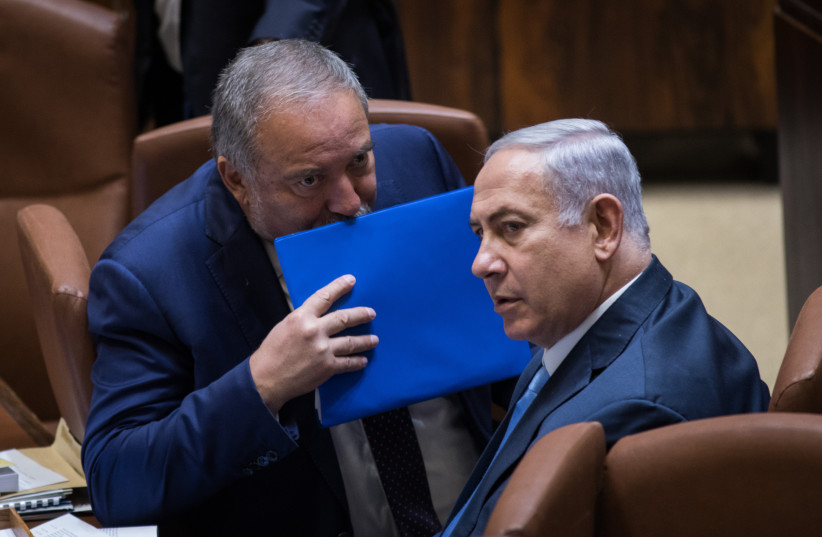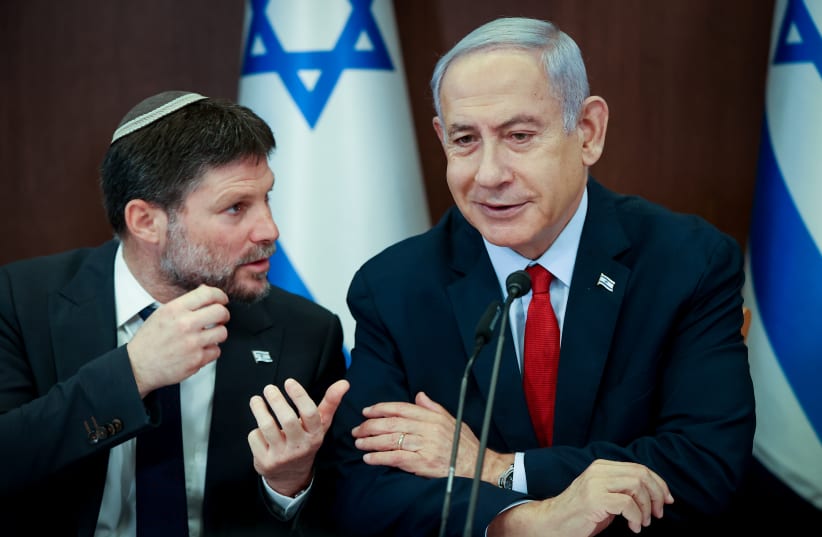Israeli Prime Minister Benjamin Netanyahu wants to go against the coalition deal with Otzma Yehudit and appoint a Shas member to the Judicial Selection Committee rather than MK Yitzhak Kreuzer, coalition officials told Maariv on Sunday.
The sources noted that after the previous secret ballot vote, "the assessment is that the Shas member will pass smoothly and won't spark opposition that would lead to an undesirable result."
According to coalition agreements between the Likud and Otzma Yehudit, the latter will receive a spot on the committee, and Otzma Yehudit chairman Itamar Ben-Gvir announced over a week ago that his candidate would be Kreuzer.
Tension has been rife within the coalition since Yesh Atid MK Karine Elharrar was elected to the Judicial Selection Committee last week. Now, the coalition is thinking about what it can do next.
The tension between Shas and Otzma Yehudit spilled over in parallel press briefings by "senior" members of each party, over Otzma Yehudit voted against a bill proposal by Shas to delay the vote for the country's chief rabbis for half a year.


"Ben-Gvir is the biggest failure in the government, and Otzma Yehudit is the weak link in the country's leadership," a "senior Shas member" said to the haredi Kikar Hashabat website.
"They tried this time to take a ride on the backs of the chief rabbis – they will not succeed. The law will pass in the plenum. This is not about pita bread for prisoners, but a critical concern of corruption" if the chief rabbis become political chips in October's municipal election, the Shas member added, in reference to the reason for the postponement of the chief rabbi election.
Channel 12's Amit Segal quoted a "senior member of Otzma Yehudit" as saying that Shas chairman MK Aryeh Deri was "harming" the judicial reform for his own purposes.
"From the first moment, what interests him is only reasonableness, reasonableness, reasonableness," the Otzma Yehudit member said, in reference to a part of the reform that would limit the court's use of the factor of reasonableness when evaluating the legality of government decisions. This part of the reform could possibly pave Deri's path back to the government, after the Supreme Court forced Netanyahu to fire him using the reasonableness factor.
"The reasonableness factor is important, but the Judicial Selection Committee is more important, and I would not be surprised if his people voted for Elharrar only to cooperate with the Left," the Otzma Yehudit member said.
Justice Minister Yariv Levin's position is that it whoever the coalition votes to join the committee doesn't matter because of how the committee will be comprised. The committee includes nine members, including three judges who have veto power. The committee currently won't meet until all its members have been chosen, which is what Levin is working towards.
Liberman accuses Israeli coalition, opposition of collusion in Judicial Selection Committee vote
Yisrael Beytenu leader MK Avigdor Liberman said on Saturday that he spoke with senior Likud officials and said "It seems like everything that happened around the vote on Wednesday was one big show." According to him, "This is a deal between [National Unity leader MK Benny] Gantz and [opposition leader MK Yair] Lapid on one hand and Netanyahu and [Shas leader Arye] Deri on the other."
The Yisrael Beytenu leader also said that Shas MKs were among those who voted for Karin Elharrar and another candidate Pnina Tamano-Shata under the orders of Deri and with the knowledge of Netanyahu, Lapid, and Gantz.
"Lapid and Gantz's interest was to achieve something in the Knesset vote, Netanyahu's interest was to freeze the judicial coup in order to go to Washington and to weaken the protests. Deri's interest was to continue the judicial reform talks at the President's Residence in order to pave the way to his being able to return to the government."
